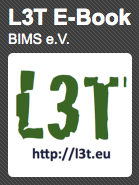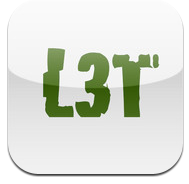Ich wurde zur heurigen Swiss eLearning Conference (SeLC) als Keynote eingeladen und werde dort einen Vortrag rund um das Thema mobile Learning halten. Einmal schauen, was ich mir bis dorthin alles einfallen lasse, Ideen sind wie immer willkommen.
Weiters hat man mit mir auch ein Interview geführt, wo ich kurz meine Gedanken zum Thema präsentieren durfte:
Was bedeutet der immer und überall mögliche Zugriff auf Informationen und Netzwerke für die Lernkultur?
[…] Das ist heute schon Realität und Teil unseres Lebens. Man muss heute eine andere Form von Medienkompetenz aufbauen: Informationen sind immer verfügbar, man muss sie aber entsprechend finden und anwenden können. Zudem können wir heute in Echtzeit mit ExpertenInnen diskutieren, wir müssen nur die richtigen Fragen stellen und die Antwort richtig interpretieren. Diese Möglichkeit der Interaktion ist einzigartig in der menschlichen Geschichte und auch die wahre Revolution hinter dieser Technologie.



